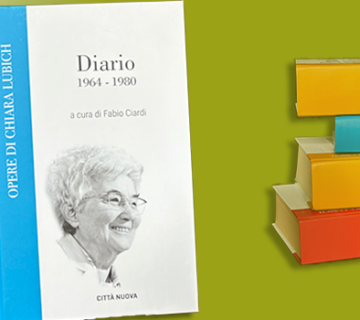 ‘“You’ve brightened Egypt” is a common phrase in Egypt, used to welcome new guests who have come to visit. A phrase dictated by the wisdom of an ancient culture that sees the gift of God’s presence in the guest who arrives. These words also synthesize the moments of discussion between Maria Voce and Giancarlo Falleti and several groups of the Focolare Movement in Egypt. Everyone was looking forward to such an open discussion in which they could talk about the challenges that are facing Egypt today, and issues related to the relationship among Churches.
‘“You’ve brightened Egypt” is a common phrase in Egypt, used to welcome new guests who have come to visit. A phrase dictated by the wisdom of an ancient culture that sees the gift of God’s presence in the guest who arrives. These words also synthesize the moments of discussion between Maria Voce and Giancarlo Falleti and several groups of the Focolare Movement in Egypt. Everyone was looking forward to such an open discussion in which they could talk about the challenges that are facing Egypt today, and issues related to the relationship among Churches.
What does it mean to live the Gospel in such a context today? How can we remain open to everyone in a society where there is so much discrimination? How are we to understand what choices to make about our future when we are young? And for our families? Is it possible to live the spirit of communion in such a complex and rapidly changing society whose future is also so cloudy? These are pressing questions for today’s Egyptians, two years away from the Egyptian Revolution in Tahrir Square, with a population that is young and where Christians are looking to the future with apprehension. The Christian community here descends from the Apostolic Church, founded by Mark the Evangelist. But it is presently a minority, even though it is deeply rooted in and part of the society and of the cultural history of this land.
 There were several opportunities for dialogue among the Focolare members with their president and co-president: the meeting of 350 close adherents; the meeting among focolarini (men) and focolarine (women) living in community in Cairo and Sohag; the evening with around a hundred young people who are the animators of activities for young people in the spirit of the Focolare. Maria Voce and Giancarlo Falletti’s suggestions were very provocative because of their radicalness. They always went back to the Gospel as the only prospective from which to view the present as well as the future. Then they expressed their gratitude to everyone for their commitment in living the message of Gospel love under the banner of the unity for which Jesus had prayed before dying.
There were several opportunities for dialogue among the Focolare members with their president and co-president: the meeting of 350 close adherents; the meeting among focolarini (men) and focolarine (women) living in community in Cairo and Sohag; the evening with around a hundred young people who are the animators of activities for young people in the spirit of the Focolare. Maria Voce and Giancarlo Falletti’s suggestions were very provocative because of their radicalness. They always went back to the Gospel as the only prospective from which to view the present as well as the future. Then they expressed their gratitude to everyone for their commitment in living the message of Gospel love under the banner of the unity for which Jesus had prayed before dying.
“Your life has been affected by this great suspension” admitted co-president Faletti. “An historical change is underway which involves contingencies. We want to share this uncertainty with you. We feel that you are the privileged brothers and sisters. You’re not alone. In our travels we’ve met other countries like your own, even in worse situations where there was overwhelming uncertainty. I am so grateful for your life.” Then, recalling the experience of Chiara Lubich during the early days of the Movement in the midst of the Second World War, he concluded: “(…) Chiara returned to her city deprived of certainties and securities. God was calling her there(…) As far as possible remain in the city where God has placed you. You are contributing to the path of God in humanity.”
The challenges lie precisely in the life of each day, said Maria Voce to a young married couple. She recalled that is was into a society like this that Jesus had come and lived, bringing a New Law, a law of love towards brothers and sisters with forgiveness. It’s not weakness but a sign of strength. Memories were still vivid of the days in Tahrir Square and the Egyptian Revolution that had given hope to millions of Egyptians. “How can we be true revolutionaries by bringing the light that makes us see?” asked one youth. Maria Voce offered him a challenge. “The only answer for this is the life of Jesus. The revolution that takes place in the life of a youth who tries to live the spirituality of the Focolare is that of living the life of Jesus. And Jesus says: “I am the light of the world” (Jn. 8:12). This is the real revolution: asking oneself what Jesus would do here, today. ‘You will do even greater things than I have done’ (see Jn. 14:12). He said it and we can do it. We can be the true revolutionaries par excellence!”


 Italiano
Italiano Español
Español Français
Français Português
Português


